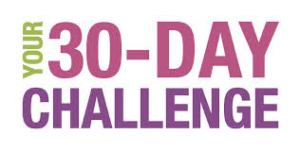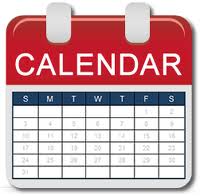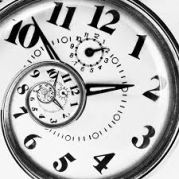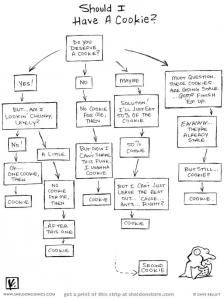 People giggle when I tell them that I love to be second. Second to try out some new technology. Second time in an exercise class. Second hike along a trail. Second meetings with old friends so we can move past the surface stories and get to the good stuff. Second visit to just about any place or event is better than the first because I can better navigate the situation. Number 2 is my number 1.
People giggle when I tell them that I love to be second. Second to try out some new technology. Second time in an exercise class. Second hike along a trail. Second meetings with old friends so we can move past the surface stories and get to the good stuff. Second visit to just about any place or event is better than the first because I can better navigate the situation. Number 2 is my number 1.
Of course the huge exception to this is sobriety. Knowing now what it took to get through those first few months, I’m not sure that I’m tough like that to do that again.
The past few days I’ve been in the Stuck. Just hanging out here, looking around, knowing that it isn’t a healthy nor safe place to relax. There are clear signs: dawdling, excessive time lurking on Facebook, isolating, noticing the places where I bought alcohol in the past, noticing the places where I hid it, and getting completely rattled by any talk of God in AA meetings. Its as if my senses have all returned to where they were 14 months ago. Familiar territory is not a supportive place in this mind space. But, I recognize it this time around. What a relief! Today I took an inventory of my thinking and clearly saw it for what it was, which is darned close to the thinking that had me convinced it was brilliant back before sobriety became the new norm. To simply recognize this Stuck for what it is gets me on the road to moving beyond it.
1st time in the stuck: 2 weeks to realize where I was.
2nd time in the stuck: 3 days to realize where I was. The point goes to 2nd time!
The first time in the Stuck, getting out was so many levels of miserable. A few actions were simple and had an immediate and strong effect: change driving patterns, keep forcing myself to physically move and not sit still. Changing driving patterns was a tactic that helped me more than would seem reasonable in the first two or three months of sobriety. By driving in different patterns, it forced my mind to think and see things differently. The payoff for this simple change was significant. By keeping myself moving, regardless of whether or not something actually needed to be accomplished, kept me from dawdling and lurking, which kept me in the moment. Again, a fairly simple tactic that paid large dividends.
The huge hurdle to get out of the Stuck the first time around was dealing with the God thing in AA. Or more specifically, the way I chose to interpret the spiritual portion of the AA program. In this state of mind, I can talk myself into crazy states based solely on the second step: Came to believe that a Power greater than ourselves could restore us to
sanity. And here’s how the crazy starts and spirals out of control:
- Since I don’t personally believe at this time that a power greater than myself dabbles in individual people and their individual challenges
- Then I cannot turn my will over to a higher power
- Which puts me firmly in control
- The same need for absolute control that contributed to my drinking getting so out of hand
- The same control I am not willing to give up at this moment
- Which means that AA is not for me
- Because I am terminally unique and all of those people who got sober working the 12 steps are full of hog wash. All of them.
- Because I am the only person who could ever come up with the correct answer to these big questions
- Which means that I’m going to go this alone
- While all of those ignorant people keep sitting in AA meetings
To which all I can ask myself is, “Really?!” The first time in the Stuck, that line of seemingly reasonable thinking had me riled up all day and tossing and turning all night. Now, the second time around, I realize that a different approach is needed.
An entry point is all I need to get back on track, and being an overachiever, I found two. The first is in step 1, I admit that I am powerless over alcohol. At the very core of my being I know for a solid fact that no alcohol at all can enter my body with any hope of me retaining my sobriety. The possibility for moderation is nil. It is strangely soothing to know this is a 100% truth and need not be tested. The second entry point is from further down the list in step 11, meditation. Meditation practice to be more precise. I practice meditation more and more often because in my experience, when my mind is clear and calm, the walls come down, thinking clears, and personal relationships thrive. Through meditation practice I am able to pull myself out of the Stuck.
1st time in the stuck: 3 weeks to pull myself out.
2nd time in the stuck: 2 days to get back on track. Again, the point goes to 2nd time!
It is my hope that by sharing my story of recovery, it will help others who walk this road by my side, and give hope to those who are ready to begin.

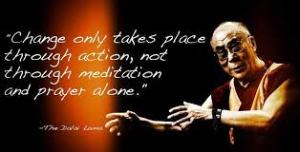 Its time to change up the work. In early, early recovery, the work was prescribed by the chemical dependency department of my health care provider. Thank goodness they had a clear plan because my planning to drinking less tomorrow wasn’t flying. In AA, my sponsor helped me develop a plan of working with her weekly, attending 3 meetings, being of service, and calling other alcoholics. That plan established much needed personal stability and started me on the road to developing friendships with others in recovery and I stuck with it for a year (2 rounds of 6 month commitments).
Its time to change up the work. In early, early recovery, the work was prescribed by the chemical dependency department of my health care provider. Thank goodness they had a clear plan because my planning to drinking less tomorrow wasn’t flying. In AA, my sponsor helped me develop a plan of working with her weekly, attending 3 meetings, being of service, and calling other alcoholics. That plan established much needed personal stability and started me on the road to developing friendships with others in recovery and I stuck with it for a year (2 rounds of 6 month commitments). What is your experience with changes in your recovery program? What types of changes have you tried?
What is your experience with changes in your recovery program? What types of changes have you tried?



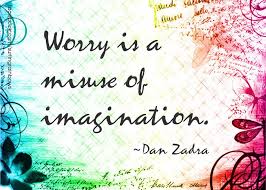 ic offering for today: If you could permanently get rid of one worry, what would it be?
ic offering for today: If you could permanently get rid of one worry, what would it be?